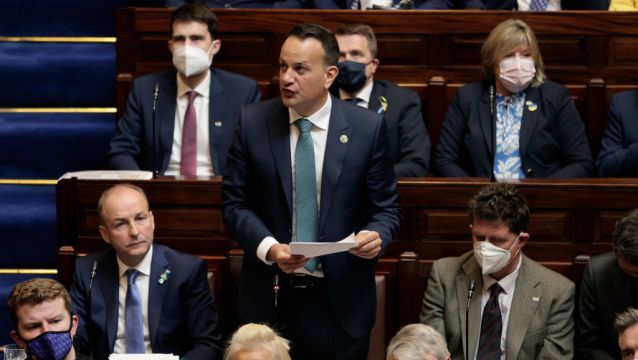Tanáiste Leo Varadkar has dismissed suggestions that workers will see their hours cut because businesses can’t afford to pay an increase to the national minimum wage from next year.
As the Irish Examiner reports, Cabinet signed off on the recommendation brought by Mr Varadkar from the Low Pay Commission which will see an increase of 80 cent - bringing the minimum wage to €11.30 per hour.
For someone on the national minimum wage working a 39-hour week, this translates to a pay increase of €31.20 a week, more than €120 a month, or €1,600 a year.
Around 170,000 workers will see the boost to their wage from next year.
However, businesses have warned that the move will only lead to reduced working hours for employees as employers won’t be able to afford the increase due to the surge in the cost-of-living crisis and energy bills.
Earlier today, trade unions criticised the plans to increase the minimum wage by 80 cent to €11.30 an hour, saying it does not go far enough in working towards a living wage.
Ripped up
Trade union Unite called on the Government to set aside the Low Pay Commission report which recommends an increase in the hourly minimum wage of just 80 cent to €11.30.
Unite, which earlier this year made a submission to the Low Pay Commission calling for the minimum wage to be increased to €12.50, said that the proposed 80 cent increase means that the Government has effectively "ripped up" its commitment to move to a living wage by the end of its term in office.
Dismissing the claim it will lead to reduced work hours, Varadkar said over the years, he has often heard this argument that if you increase pay or give workers’ more rights such as maternity benefits or sick pay, that employment will fall.
He said, however if he is proven wrong, then “it would need to be looked at again.”
Mr Varadkar said that businesses are struggling to recruit and retain staff, and he believes one of the best ways to help this is better pay.
He added: “We've never had more people at work than we do today and I think in the end, that won't be true.”
The commission also sets out an indicative rate for what is called a Living Wage.
It is set to replace the minimum wage by 2026, and it will be set at 60 per cent of the average wage.







